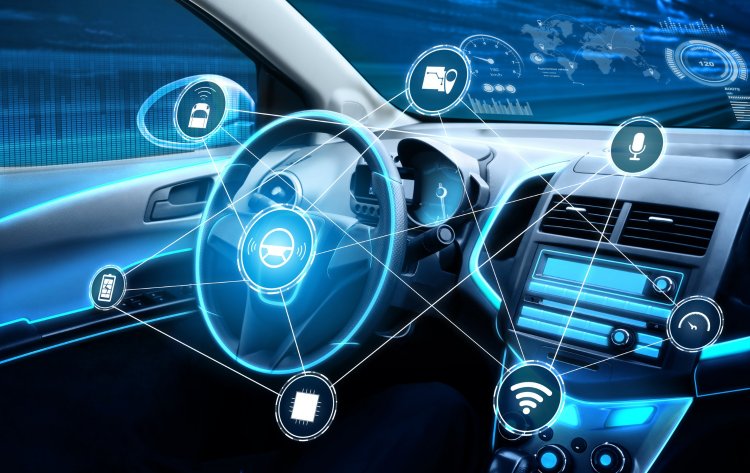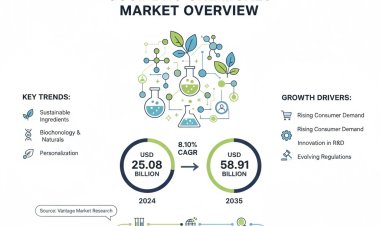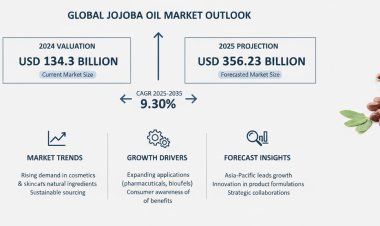Global Connected Cars Market Size to Reach $100.1 Billion at a CAGR of 19.6% by 2030
Vantage Market Research expects the Connected Cars Market to reach USD 100.1 Billion by 2030, exhibiting a growth rate (CAGR) of 19.6% during 2023-2030.

The Global Connected Cars Market size reached USD 23.9 Billion in 2022. Vantage Market Research expects the market to reach USD 100.1 Billion by 2030, exhibiting a growth rate (CAGR) of 19.6% during 2023-2030.
Table of Contents:
|
|
|
|
|
|
|
|
|
|
|
|
|
|
|
|
|
|
|
|
|
|
|
|
|
|
The Benefits of a Connected Car: Convenience, Safety, and More
In recent years, technology has revolutionized every aspect of our lives. One area that has seen significant advancements is the automotive industry. With the introduction of Connected Cars, the driving experience has been transformed, offering numerous benefits to both drivers and passengers. In this blog post, we will explore the advantages of a Connected Car, including convenience, safety, and more.
Request Sample Report of Connected Cars Market @ https://www.vantagemarketresearch.com/connected-cars-market-2303/request-sample
Top Companies in Global Connected Cars Market
- CloudMade (UK)
- TOMTOM International N.V. (Netherlands)
- AT&T Inc. (U.S.)
- Vodafone Group PLC (UK)
- Airbiquity Inc. (U.S.)
- Ford Motor Company (U.S.)
- LUXOFT (Switzerland)
- BMW Group (Germany)
- Samsung Electronics Co. Ltd. (South Korea)
- Verizon Communications Inc. (U.S.)
- Robert Bosch GmbH (Germany)
- Intellias Ltd. (U.S.)
- Continental AG (Germany)
First and foremost, convenience is one of the key benefits of a Connected Car. With the integration of technologies such as Bluetooth and Wi-Fi, drivers can seamlessly connect their smartphones to their vehicles. This connectivity allows for hands-free calling and messaging, making communicating easier and safer on the road. Drivers can also use voice commands to control various car functions, such as adjusting the temperature, choosing a music track, activating the GPS, minimizing distractions, and enhancing the overall driving experience.
Furthermore, Connected Cars offer a wide range of features that simplify the day-to-day tasks associated with driving. For instance, many vehicles now have remote start capabilities, allowing drivers to start their cars from the comfort of their homes or offices. This feature can be especially useful during extreme weather conditions, as drivers can warm up or cool down their vehicles before entering, providing a more comfortable environment.
Another convenient feature available in Connected Cars is the ability to access real-time traffic information. This information is continuously updated and provides drivers with insights into the current road conditions, including accidents, road closures, and traffic congestion. With this knowledge, drivers can plan their routes accordingly, saving time and frustration. In some cases, Connected Cars can even propose alternative routes to avoid heavy traffic, making the daily commute more efficient and enjoyable.
Connected Cars also offer a plethora of safety benefits. One significant aspect is the integration of advanced driver-assistance systems (ADAS). These systems use various sensors and cameras to detect potential hazards on the road and alert drivers in real time. ADAS features include blind-spot monitoring, lane departure, and forward collision warnings. By keeping drivers informed and alert, these systems help reduce the risk of accidents and increase overall safety on the road.
Connected Cars can also provide emergency assistance when needed. In the event of an accident, Connected Cars can automatically alert emergency services and provide them with vital information, such as the vehicle's location and severity of the collision. This quick and automated response can be life-saving, especially when the driver cannot call for help themselves. Additionally, Connected Cars can also enable remote diagnostics, notifying drivers of any potential mechanical issues before they become major problems and keeping both the car and its occupants safe.
Another remarkable benefit of Connected Cars is their ability to enhance fuel efficiency. Through real-time monitoring of various vehicle metrics, such as fuel consumption, engine performance, and driving behavior, Connected Cars can provide drivers with insights into optimizing their driving habits to achieve better fuel economy. This information can include suggestions on when to accelerate or decelerate, how to avoid excessive idling, and how to drive more efficiently. By utilizing these recommendations, drivers can reduce their environmental footprint and save money on fuel expenses.
Buy Now Our Connected Cars Industry Report @ https://www.vantagemarketresearch.com/buy-now/connected-cars-market-2303/0
In addition to convenience, safety, and fuel efficiency, Connected Cars also offer entertainment features that enhance the overall driving experience. With internet connectivity, passengers can access various entertainment options, including streaming music, movies, and even video games. This feature is particularly beneficial for long trips, providing entertainment to both children and adults, making the journey more enjoyable and less tedious.
Lastly, it is worth mentioning that Connected Cars also contribute to building smart cities and transportation networks. By connecting vehicles to the internet and sharing data with other cars and infrastructure, Connected Cars can help reduce traffic congestion, improve traffic flow, and minimize air pollution. This connectivity allows for real-time information exchange, facilitating the development of intelligent transportation systems that optimize traffic management, parking availability, and public transportation routes.
In conclusion, the benefits of Connected Cars are plentiful. From convenience and safety to fuel efficiency and entertainment, these vehicles have transformed the way we drive and travel. As technology continues to evolve, it is safe to say that the future of transportation lies in the hands of Connected Cars, providing us with a safer, more efficient, and enjoyable driving experience. So, if you're considering purchasing a new vehicle, it might be worth exploring the world of Connected Cars and reaping their numerous benefits.
Read Our Latest Press Release: Cold Chain Market - In-depth Analysis
Contact us
Eric Kunz
6218 Georgia Avenue NW Ste 1 - 564
Washington DC 20011-5125
United States Tel: +1 202 380 9727
Email: [email protected]
Website: Vantage Market Research


















